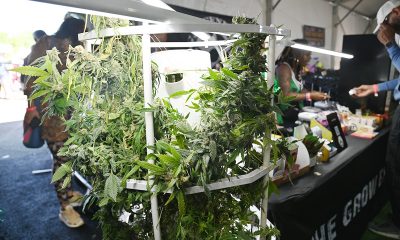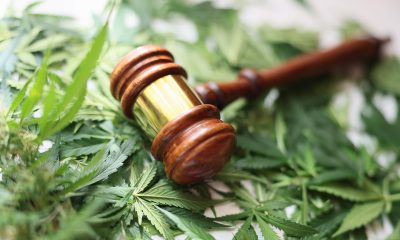Cannabis Culture
Cannabis Culture
Fed’l agencies offer guidance for banks, hemp providers
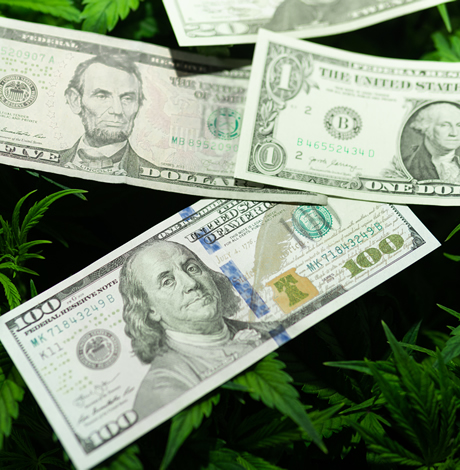
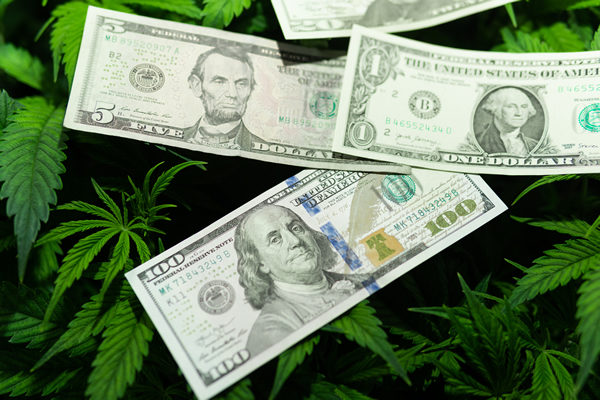
Fed’l agencies offer guidance for banks, hemp providers
Federal banking agencies released a joint statement last week acknowledging that banks and other financial institutions may work with those in the commercial hemp industry.
The new guidance memo states, “[B]anks are no longer required to file suspicious activity reports (SAR) for customers solely because they are engaged in the growth or cultivation of hemp in accordance with applicable laws and regulations.” The statement was issued by the Federal Reserve Board, the Federal Deposit Insurance Corporation, FinCEN, the Office of the Comptroller of the Currency and the Conference of State Bank Supervisors.
Banks have historically been reluctant to work with any businesses involved with the production or sale of cannabis-related products.
Legislation signed into federal law in 2018 de-scheduled low-THC hemp and products derived from industrial hemp plants from the Controlled Substances Act. In October, the USDA issued interim rules governing commercial hemp cultivation.
CBD extracts aid patients with autism: study
BRASILIA, Brazil — The twice-daily administration of plant-derived CBD-dominant extracts is associated with symptom improvement in adolescents with autism spectrum disorder (ASD), according to observational data published in the journal Frontiers in Neurology.
Brazilian investigators assessed the use of CBD-enriched cannabis extracts (75 to 1 ratio CBD to THC) in 15 ASD patients over at least six months. Study participants were between the ages of six and 17 years and subjects consumed between 50 to 100mg of oral CBD capsules daily.
Authors reported, “Fourteen out of these 15 patients (93 percent) showed improvements equal to or above 30 percent in at least one symptom category. Most patients that adhered to the treatment had improvements in more than one symptom category: seven patients (47 percent) had improvements equal to or above 30 percent in four or more symptom categories; two patients (13 percent) presented improvements equal to or above 30 percent in two symptom categories, and five patients (33 percent) presented improvements equal to or above 30 percent in one symptom category.”
They concluded, “The findings presented here, taken together … indicate that CBD-enriched CE [cannabis extracts] yields positive effects in multiple autistic symptoms, without causing the typical side effects found in medicated ASD patients. Most patients in this study had improved symptoms even after supervised weaning of other neuropsychiatric drugs.”
The findings are similar to those of other recent trials reporting that the use of CBD-dominant extracts reduces symptoms of ASD and is well-tolerated by most patients.
Full text of the study, “Effects of CBD-enriched cannabis sativa extract on autism spectrum disorder symptoms: An observational study of 18 participants undergoing compassionate use,” appears in Frontiers in Neurology.
FDA warns companies against illegally marketing CBD
Representatives of the U.S. Food and Drug Administration recently issued warning letters to multiple companies for marketing CBD-specific products in ways that violate federal law.
The agency issued warning letters last week to 15 commercial entities. Seven additional companies received similar letters earlier this year.
The FDA alleges that the companies marketed CBD as either a dietary supplement or as a food additive, or in a manner that implied it could prevent or cure serious diseases — all of which violate the federal Food, Drug & Cosmetics Act.
Following the passage of the 2018 Farm Bill, which removed low-THC hemp and extracts from the plant from the Controlled Substances Act, the agency advised: “Cannabis and cannabis-derived products claiming in their marketing and promotional materials that they’re intended for use in the diagnosis, cure, mitigation, treatment, or prevention of diseases are considered new drugs or new animal drugs and must go through the FDA drug approval process for human or animal use before they are marketed in the U.S. … Additionally, it’s unlawful under the FD&C Act to introduce food containing added CBD or THC into interstate commerce, or to market CBD or THC products as, or in, dietary supplements, regardless of whether the substances are hemp-derived.”
Two weeks prior to the FDA’s action, a review of 300 leading online CBD retailers by the group LegitScript.com reported that 92 percent of sellers marketed products in a manner that was non-compliant with current FDA policies.
The FDA also issued a separate advisory acknowledging that many commercially available CBD products lack appropriate regulatory controls and may be of variable quality and purity. NORML has previously highlighted several independent investigations identifying product mislabeling and/or the presence of adulterants and/or heavy metals in some commercially available CBD products, such as those here, here, and here.
Currently, commercially available CBD products are not regulated by the FDA, despite the fact that some three in four Americans presume otherwise. By contrast, CBD-infused products sold at state-licensed dispensaries are typically subject to state-specific regulations and lab testing protocols. However, such facilities are typically only open to either state-qualified patients or to adults in states that legally regulate whole-plant cannabis sales.
In May, NORML provided written testimony to the FDA urging the agency to move expeditiously to provide regulatory guidelines governing CBD-infused products, including best practices for their manufacturing, standardization, and purity. In Monday’s announcement, the agency acknowledged that it “plans to provide an update on its progress regarding the agency’s approach to these products in the coming weeks.”
Cannabis Culture news in the Blade is provided in partnership with NORML. For more information, visit norml.org.
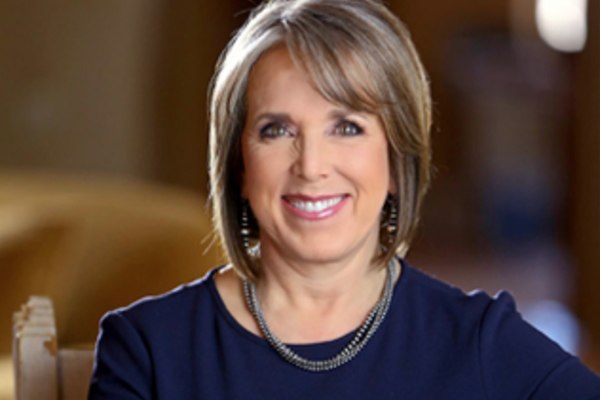
Democratic Gov. Michelle Lujan Grisham earlier this month signed two separate measures into law amending the state’s marijuana policies. The first measure (House Bill 2) legalizes and regulates marijuana possession, production, and sales for adults. The second measure (Senate Bill 2) facilitates the automatic review and expungement of the records of those convicted of low-level marijuana offenses.
Lawmakers approved both bills during a special legislative session demanded by Gov. Lujan Grisham, who had been a vocal proponent of the reforms.
NORML State Policies Manager Carly Wolf said: “This is a day to celebrate! New Mexico will greatly benefit from this new revenue stream and the creation of thousands of jobs. Most notably though, legalization will spare thousands of otherwise law-abiding residents from arrest and a criminal record, and the state’s new expungement law will help provide relief to many who are suffering from the stigma and other collateral consequences associated with a prior marijuana conviction.”
The adult-use measure (House Bill 2) permits those ages 21 and older to legally purchase up to two ounces of marijuana and/or up to 16 grams of cannabis extract from licensed retailers. It also permits adults to home-cultivate up to six mature plants for their own personal use. Retail sales would begin by April 2022.
The expungement measure (Senate Bill 2) stipulates that those with past convictions for offenses made legal under this act are eligible for automatic expungement of their records. Those currently incarcerated for such offenses are eligible for a dismissal of their sentence. It’s estimated that over 150,000 New Mexico residents are eligible for automatic expungement under this measure, according to the Department of Public Safety.
Cannabis Culture news in the Blade is provided in partnership with NORML. Visit norml.org for more information.
Cannabis Culture
Delaware cannabis activists take on corporate marijuana
Criticism from medical marijuana operators claimed that HB150 offers too many cultivation and retail licenses
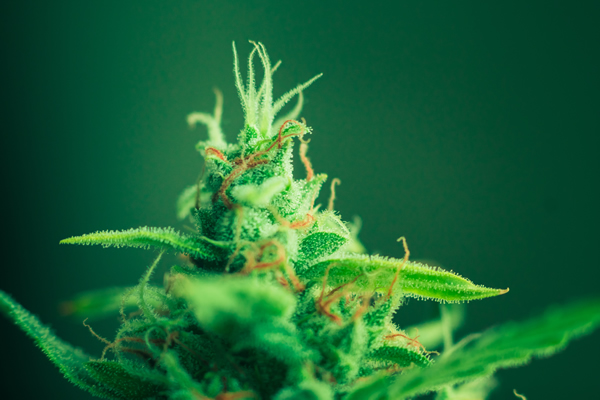
As the country moves forward with sweeping changes in cannabis policy reform, locals in Delaware are tangling with corporate, multi-state medical marijuana permit holders to pass a bill for full legalization.
Adult-use activists and registered medical patients were stunned to hear opposing testimony from Delaware’s medical marijuana operators. Patients already deal with limited access and costly products. Now, many see the established industry voicing opposition as simply obstructing the progress of adult-use legislation. In response, some patients are now staging a boycott of the regulated dispensaries.
During the first committee hearing for HB150, Delaware’s adult-use bill, four of the state’s six currently licensed, multi-million dollar medical cannabis facilities offered negative testimony.
Zoë Patchell, executive director of Delaware CAN responded: “This market belongs to the long-time consumers, patients, and activists. We create the demand, we’ve been the ones driving the reform efforts, and we pay the prices at dispensaries. Cannabis is more than a market – cannabis is a community. These companies cannot reasonably fathom that we are going to purchase cannabis from any entity that has proven to put profits over patients. And now they seem willing to put consumers’ lives and freedom at risk just to hold out for an unfair advantage in the industry.”
These included publicly traded Columbia Care, “Fresh Delaware” aka CCRI, CannTech Research Inc., and the owner of EZY Venture aka “The Farm.”
They all went on record condemning HB150, and pushing a false narrative about oversupply. The core demand from the permit cartel was some protection for their private business interests with guaranteed adult-use licenses.
Criticism from the medical marijuana operators claimed that HB150 offers too many new cultivation and retail licenses, underlined by deep yet unfounded fears that the new competition would put their companies out of business.
Patchell noted, “We are not going to sit back while multi-state corporate entities, that already monopolize East Coast medical markets, work to undermine our social equity and micro-license provisions.”
Cannabis Culture news in the Blade is provided in partnership with NORML. Visit norml.org for more information.
Cannabis Culture
Virginia marijuana legalization takes effect July 1
Adult possession of cannabis up to one ounce without penalty

Following legislative approval of Democratic Gov. Ralph Northam’s amendments to Senate Bill 1406 and House Bill 2312, Virginia became the first southern state to legalize the possession and use of marijuana by adults.
Senate Bill 1406, introduced by Sen. Adam Ebbin (D-30) and Senate President Pro Tempore Senator Louise Lucas (D-18), and House Bill 2312, patroned by House Majority Leader Delegate Charniele Herring (D-46), establish a statutory timeline for the legalization of the commercial marijuana market in Virginia. The measure also permits for the personal possession and cultivation of cannabis by those ages 21 or older.
Last week, Gov. Northam recommended changes to the legislation to permit the personal use provisions of the law to take effect on July 1, 2021 rather than on January 1, 2024, the enactment date initially approved by lawmakers. A majority of the legislature concurred with that change.
Therefore, beginning July 1, 2021, adults will be permitted to possess up to one ounce of marijuana and to cultivate up to four cannabis plants per household without penalty.
The timeline by which state regulators have to enact provisions licensing commercial cannabis production and sales remains July 1, 2024.
Commenting on final passage, NORML Development Director Jenn Michelle Pedini, who also serves as executive director of Virginia NORML, said: “This is an incredible victory for Virginia. Legalization will bring an end to the thousands of low-level marijuana infractions occurring annually in the Commonwealth — ending a discriminatory practice that far too often targets Virginians who are young, poor, and people of color.”
Majority Leader Charniele Herring added: “It is a huge day for equity in the Commonwealth. Virginia is now the first state in the South to legalize recreational marijuana use, and I am so proud to have been able to carry this monumental legislation.”
Sen. Ebbin said, “The passage of SB1406 caps off years of struggle to reform our broken and outdated marijuana laws and begins the deliberate steps to repeal the harms of the failed prohibition. I am thankful to NORML, the governor, and my colleagues for moving this 283 bill from inception to passage over the last four months, and look forward to continuing to partner with them to establish a regulated, equity focused, adult-use marketplace in the coming years.”
Newly released statewide polling data finds that 68 percent of registered voters in Virginia, including majorities of Democrats and Republicans, support legalizing marijuana for adults.
Additional amendments added by Gov. Northam will allow the sealing of records related to crimes involving the misdemeanor possession of marijuana with the intent to distribute. Those records will begin to be sealed starting on July 1, 2021. Separate legislation enacted in 2020 previously sealed records related to misdemeanor marijuana possession.
Records specific to the simple possession of marijuana and/or misdemeanor possession with intent to distribute records will be automatically expunged no later than 2025. Those with records specific to crimes involving the felony possession of marijuana with the intent to distribute may begin to petition the courts for an expounging of their records in 2025.
The bill also allows for the re-sentencing of individuals currently incarcerated for marijuana-related offenses. The measure permits those individuals to have a hearing before the court that originally sentenced them, with legal counsel provided for indigent individuals. However, this portion of the bill must be reenacted in 2022.
The legislation also establishes an independent agency, the Virginia Cannabis Control Authority, to oversee the establishment of regulations that will govern the adult-use market. This agency is set to convene this summer. The remainder of the 300-page bill, which details the regulatory and market structure and social equity provisions, is subject to a second review and vote by the Assembly next year.
Cannabis Culture news in the Blade is provided in partnership with NORML. Visit norml.org for more information.
-

 State Department3 days ago
State Department3 days agoState Department releases annual human rights report
-

 South America1 day ago
South America1 day agoArgentina government dismisses transgender public sector employees
-

 District of Columbia1 day ago
District of Columbia1 day agoCatching up with the asexuals and aromantics of D.C.
-

 Politics4 days ago
Politics4 days agoSmithsonian staff concerned about future of LGBTQ programming amid GOP scrutiny

